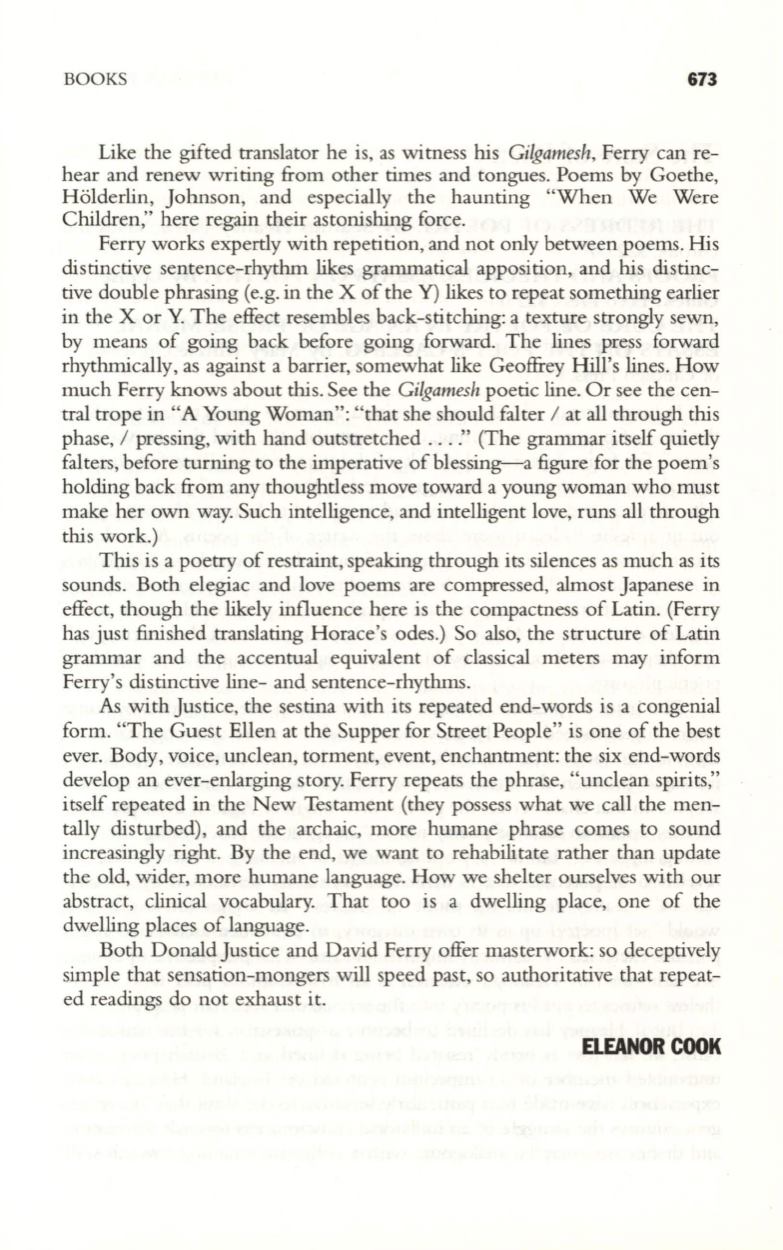
BOOKS
673
Like the gifted translator he is, as witness his
Gilgamesh,
Ferry can re–
hear and renew writing from other times and tongues. Poems by Goethe,
H6lderlin, Johnson, and especially the haunting "When We Were
Children," here regain their astonishing force.
Ferry works expertly with repetition, and not only between poems. His
distinctive sentence-rhythm likes grammatical apposition, and his distinc–
tive double phrasing (e.g. in the X of the Y) likes to repeat something earlier
in the X or
Y.
The effect resembles back-stitching: a texture strongly sewn,
by means of going back before going forward. The lines press forward
rhythmically, as against a barrier, somewhat like Geoffrey Hill's lines. How
much Ferry knows about this. See the
Gilgamesh
poetic line. Or see the cen–
tral trope in "A Young Woman": "that she should falter / at all through this
phase, / pressing, with hand outstretched ...." (The grammar itself quietly
falters, before turning to the imperative ofblessing--a figure for the poem's
holding back from any thoughtless move toward a young woman who must
make her own way. Such intelligence, and intelligent love, runs all through
this work.)
This is a poetry of restraint, speaking through its silences as much as its
sounds. Both elegiac and love poems are compressed, almost Japanese in
effect, though the likely influence here is the compactness of Latin. (Ferry
has just finished translating Horace's odes.) So also, the structure of Latin
grammar and the accentual equivalent of classical meters may inform
Ferry's distinctive line- and sentence-rhythms.
As
with Justice, the sestina with its repeated end-words is a congenial
form. "The Guest Ellen at the Supper for Street People" is one of the best
ever. Body, voice, unclean, torment, event, enchantment: the six end-words
develop an ever-enlarging story. Ferry repeats the phrase, "unclean spirits,"
itself repeated in the New Testament (they possess what we call the men–
tally disturbed), and the archaic, more humane phrase comes to sound
increasingly right. By the end, we want to rehabilitate rather than update
the old, wider, more humane language. How we shelter ourselves with our
abstract, clinical vocabulary. That too is a dwelling place, one of the
dwelling places of language.
Both Donald Justice and David Ferry offer masterwork: so deceptively
simple that sensation-mongers will speed past, so authoritative that repeat–
ed readings do not exhaust it.
REANORCOOK


